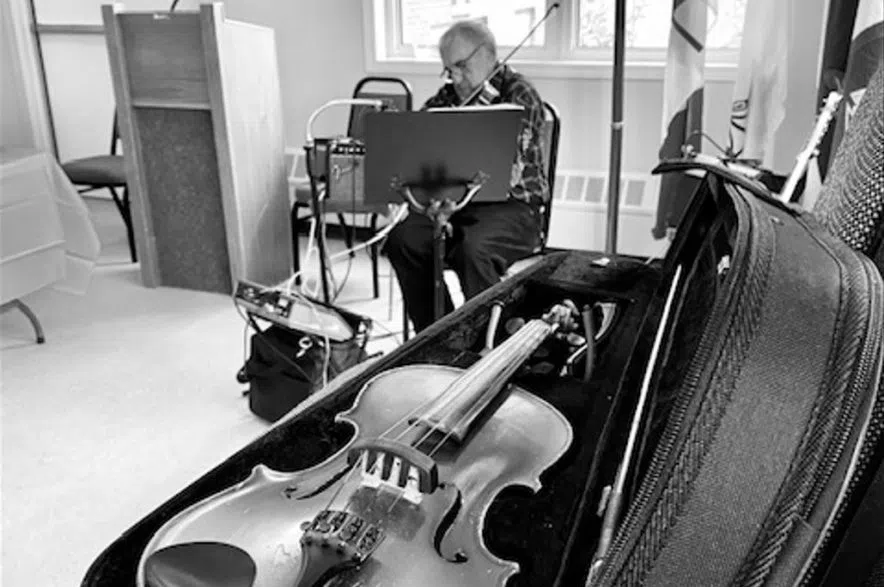BATOCHE, SK. — As you look through the branches of the Dumont family tree, one name immediately catches the eye: Gabriel Dumont.
Dumont is one of the most recognizable figures in Métis history. He is best known for his role in the 1885 North-West Resistance as a key Métis military commander and ally of Louis Riel.
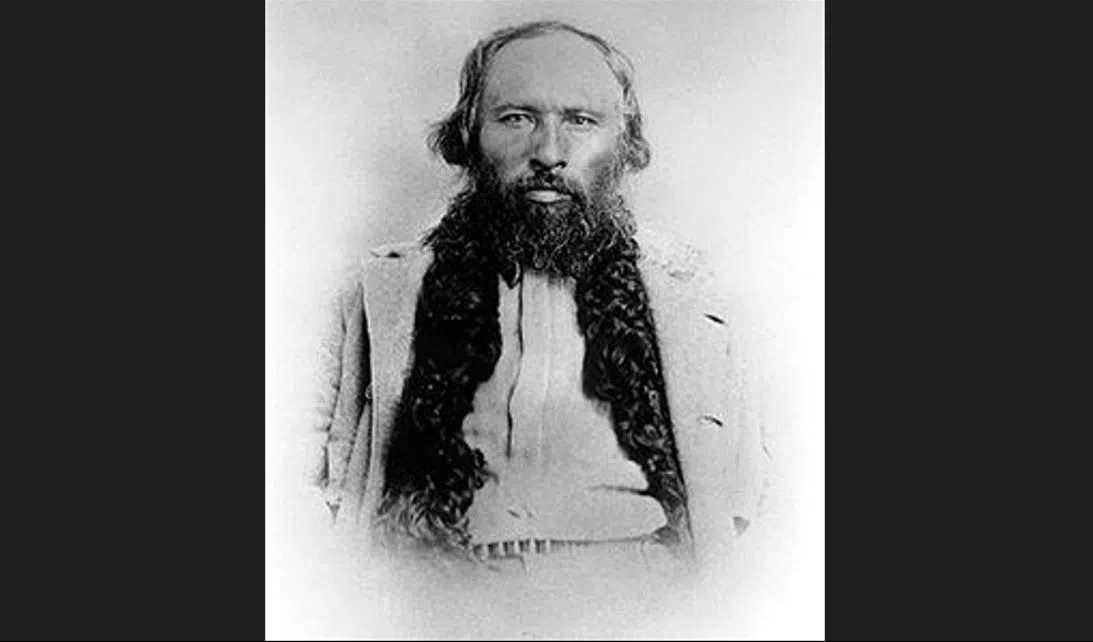
Gabriel Dumont is best known for his role in the 1885 North-West Resistance as a key Métis military commander and ally of Louis Riel. (Glenbow Archives/submitted)
While Dumont had no children of his own, his elder brother Isidore Dumont Jr. had 15 children before his death in the Battle of Duck Lake.
Isidore’s son Jean Baptiste Dumont carried on the Dumont name, passing it on to his son, and eventually his grandson — Lenny Dumont.
While Lenny is proud to bear a name that holds great meaning for many in the Métis community, he says learning to accept and celebrate his ancestry has been a life-long challenge.
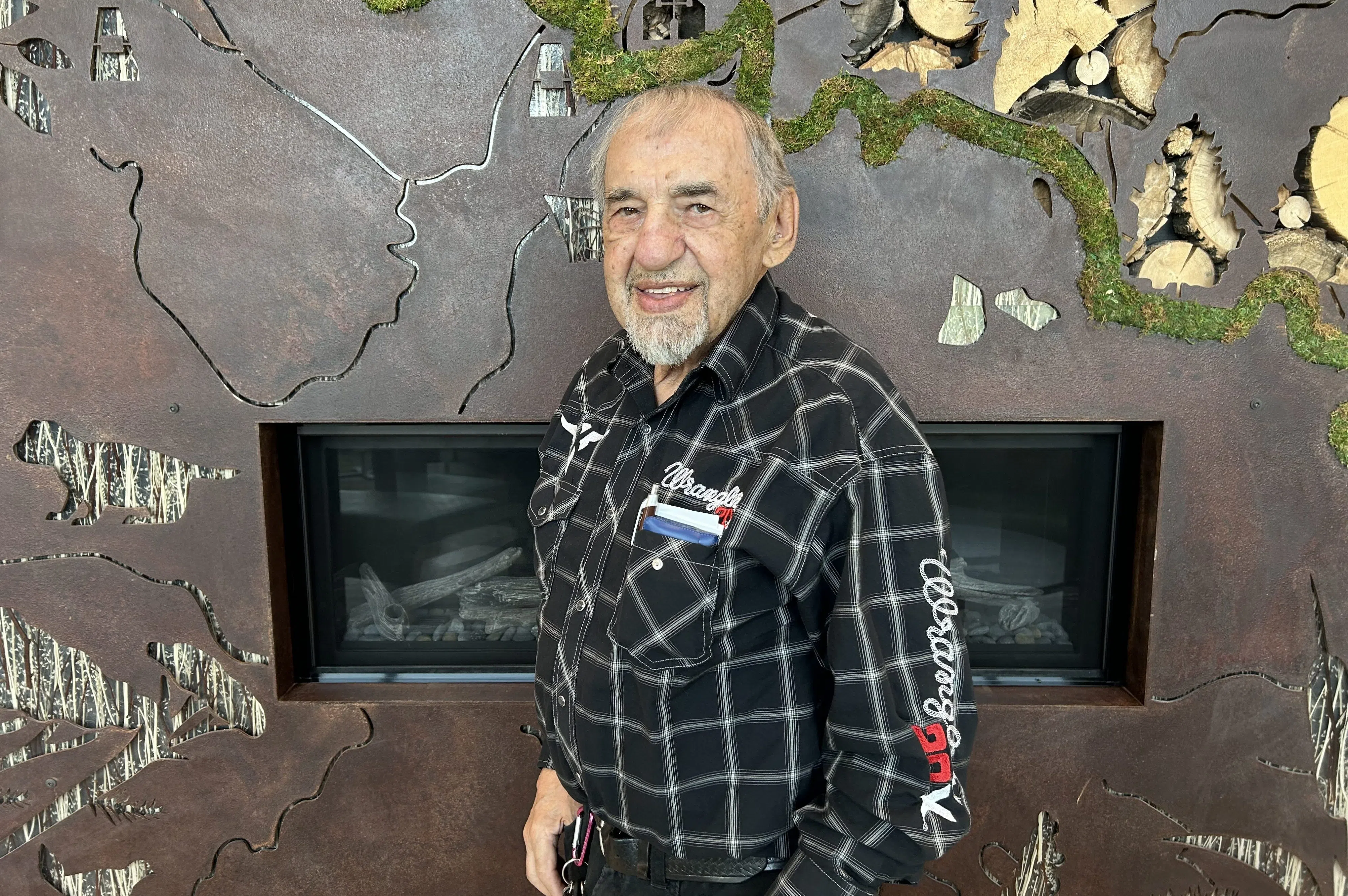
Lenny Dumont travelled to Batoche to celebrate the opening of Dumont Lodge in June. (Brittany Caffet/650 CKOM)
A flicker of pride arose in 88-year-old Lenny’s chest as he walked through the front doors of Dumont Lodge in Batoche in June, a gathering place where Métis youths can meet with elders to learn about their vibrant heritage.
As he toured through the structure, marvelling at the space dedicated to celebrating Métis culture, Lenny’s mind flashed back to memories from his childhood.
Listen to Lenny Dumont on Behind the Headlines:
“We were called half-breeds then, not Métis,” Lenny recalled. “We were always kind of looked down on. I still feel looked down on, and I’m 88 years old.”
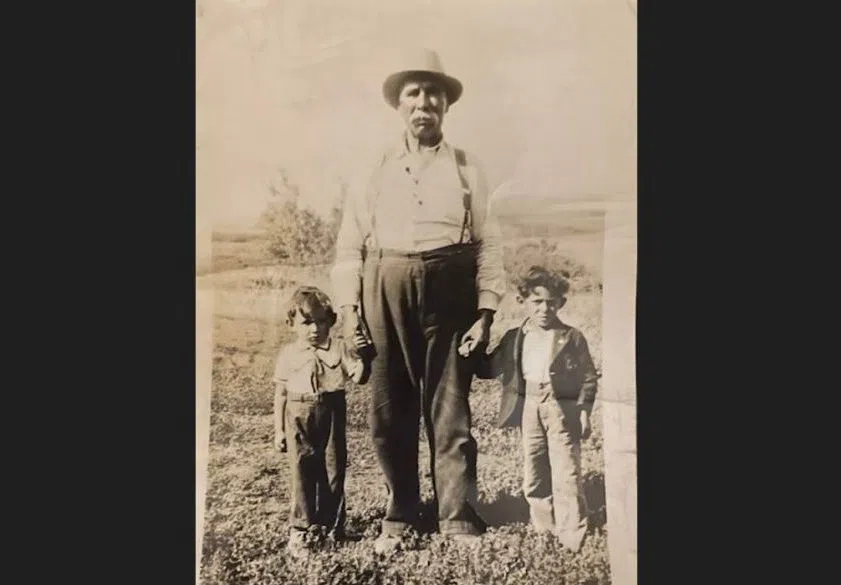
Lenny Dumont’s grandfather Jean Baptiste Dumont was the nephew of Gabriel Dumont, a well-known figure in Métis history. (Submitted)
Lenny grew up near Maidstone, Sask., and said he struggled to fit in with the other children in town once he began attending school.
“Everybody knew… that I was part Indian,” he said. “With my looks, you can tell. My complexion and everything.”
Lenny yearned to be accepted, and turned to a beloved Métis instrument to help him on his quest to fit in with the townsfolk — the fiddle.
“I got to be a fairly good musician, and then I was accepted a lot more,” Lenny said.
Lenny’s daughter Donica Dumont said her father’s struggle to find his place in the world as a Métis man left a profound impact on him.
“What I can say is these days, we are super proud (to be Métis). In Dad’s days, 80 years ago, it wasn’t that way,” she said.
“Dad has told me over the years that he did feel looked down upon. He told me a story that when the harvest was done there was a big celebration and farm dance with live music. They asked him to play there. That’s when he knew he was accepted.”
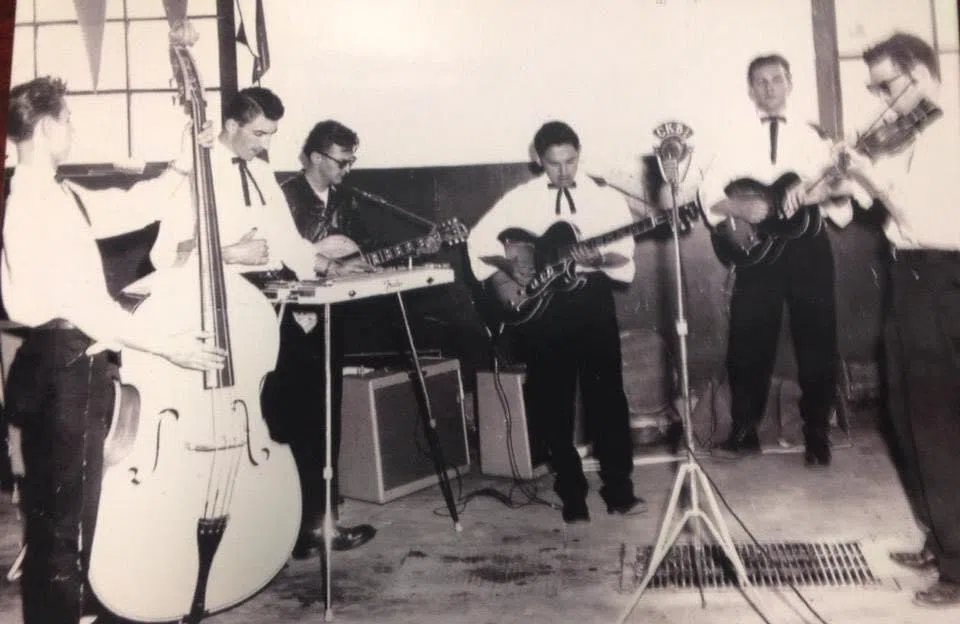
Donica Dumont said the first time her father felt accepted was when he was invited to play music at a local dance. (Submitted)
Lenny continued to dedicate his attention to music, becoming a well-known and respected figure in Saskatchewan’s Métis music scene.
Lenny believes that through the decades, society has become more kind to people of Métis ancestry.
“Even my daughters and my son are accepted more so than I was back then,” he said.
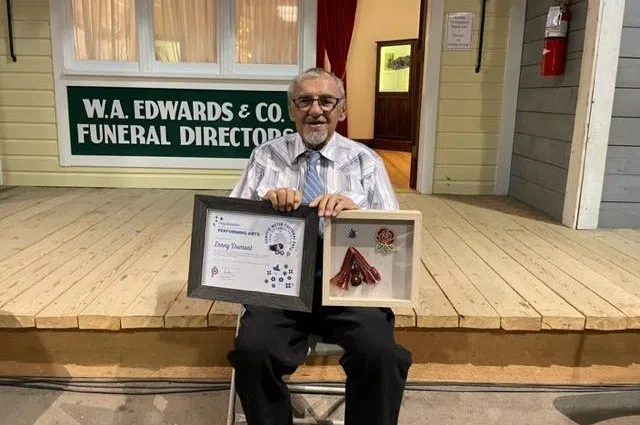
Lenny Dumont was presented with the Métis Community Achievement Award for Performing Arts in 2022. (Submitted)
“We’re so thankful to have Dad with us at 88 years old. My daughters, my nieces and now my granddaughters, they’ve all brought him into their elementary class,” she said, a smile on her face as she pictured her father performing with his fiddle before groups of third and fourth graders.
“To have our name on a building such as this… huge,” Donica said as she and her father strolled through the halls of Dumont Lodge.
“We will be long gone and it will still be here.”
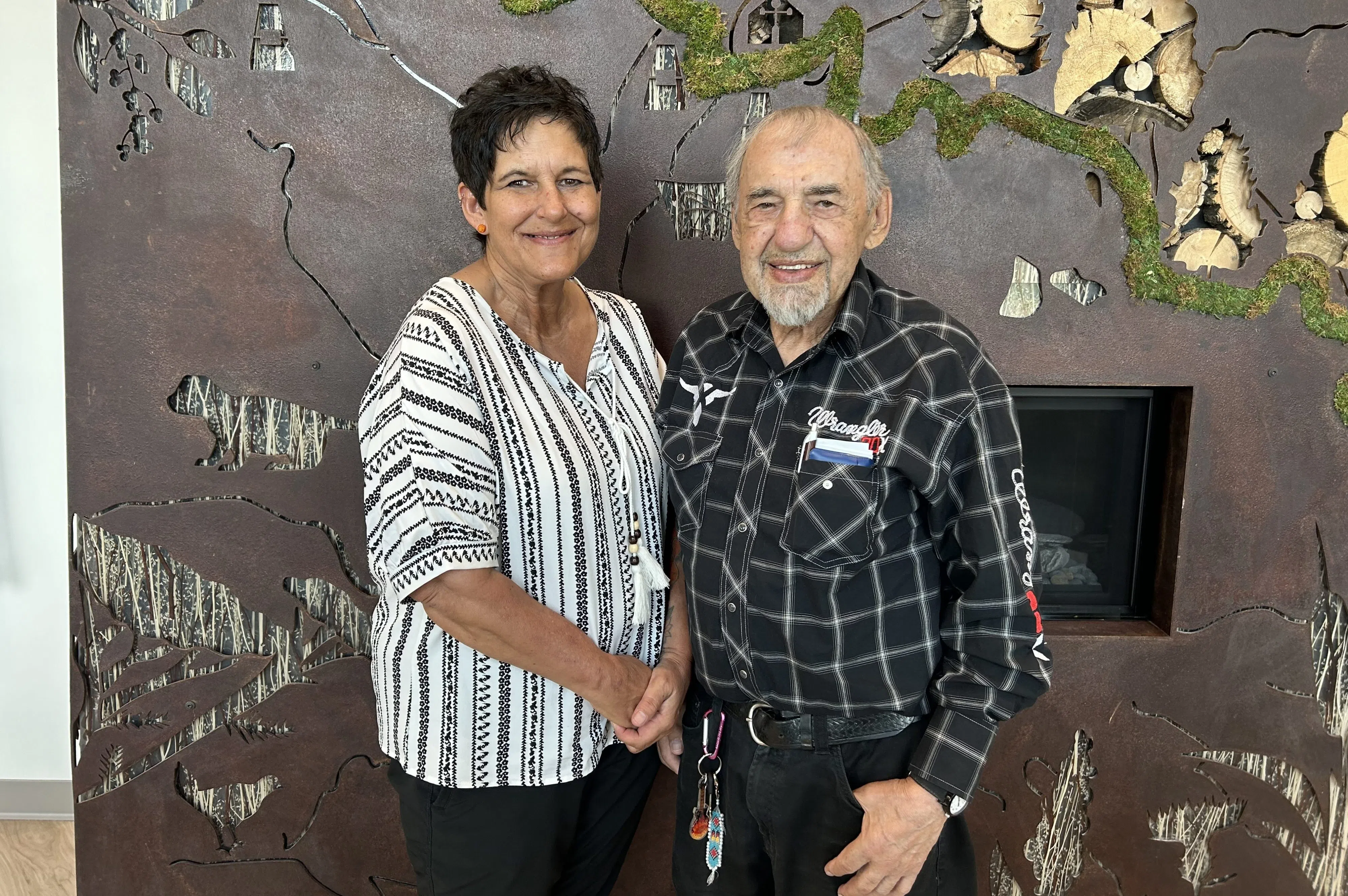
Donica Dumont said the family is incredibly proud to see their name on landmarks around the province, including the new Dumont Lodge in Batoche. (Brittany Caffet/650 CKOM)
READ MORE
